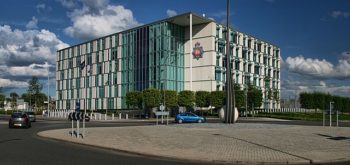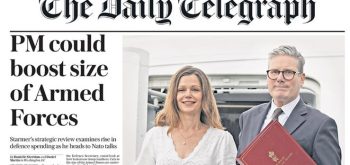Many notorious miscarriages of justice, such as the Guildford Four and Birmingham Six, occurred when suspects were denied access to solicitors and were coerced into making false confessions, writes Hannah Quirk.
Injustices can also happen when a legal adviser is present, however. Academic research, together with cases such as the Cardiff Three, raised concerns about the performance of unqualified, incompetent or insufficiently adversarial advisers. More recently, anxieties have been expressed about the effects of cuts to legal aid affecting the performance of solicitors. One area that has been overlooked thus far is the effects of changes in evidential rules that have made it harder for defence lawyers to act in their clients’ best interests: the moves to encourage ‘speedier justice’, the requirement that defendants disclose their case before trial and, most significantly, the restrictions on the right of silence.
- Dr Hannah Quirk is a lecturer in criminal law and justice at the University of Manchester. She worked for four years as a case review manager at the Criminal Cases review Commission.
- This essay is from a new collection of essays (No defence: miscarriages of justice and lawyers) which will be published as part of the Justice Gap series and following on from Wrongly Accused: who is responsible for investigating miscarriages of justice? (to be published in association with Solicitors Journal and Wilmington). You can download that collection HERE.
- Contributors for No Defence include Eric Allison; Dr Ros Burnett; Prof Ed Cape; Dr Dennis Eady; Francis Fitzgibbon QC; Mark George QC; Andrew Green; Campbell Malone; Michael Mansfield QC; Mark Newby; Daniel Newman; Paul May; Dr Angus Nurse; Correna Platt; Julie Price; Dr Hannah Quirk; David Rose; Adam Sampson; Satish Sekar; and Tom Wainwright. Thanks to all.
The right to legal advice has been described by the Court of Appeal as an essential feature of a fair trial, protected by Article 6(c) of the European Convention on Human Rights. The Police and Criminal Evidence Act 1984 (PACE) gave suspects the right to free, independent legal advice at the police station, as well as a range of other protections to counterbalance the increase in police powers. Although fewer than half of suspects seek legal representation,
PACE was caricatured by some as a gift to professional criminals and terrorists. The police and some senior judges were quick to suggest that the right of silence should be curtailed in exchange for legal advice.
This exchange was based on the logically flawed premise that, if legal advisers were enforcing their clients’ rights, then suspects should lose one of their most historically significant protections. Following his notorious 27-point crackdown on crime speech at the Conservative Party Conference, then Home Secretary, Michael Howard introduced the legislation curtailing the right of silence that became the Criminal Justice and Public Order Act 1994 (CJPOA).
Section 34 CJPOA provides that, when a defendant relies at trial upon any fact not mentioned during questioning or charge that could reasonably have been mentioned at that stage, the prosecution and judge are allowed to comment on this. The jury or magistrates may then draw ‘such inferences as appear proper’ from this omission. Sections 36 and 37 allow inferences to be drawn when suspects fail to account for the presence of any substance, object or mark about their person, or their presence at a particular place. The legislation was supposed to prevent ‘ambush defences’, even though there was little evidence that these were causing difficulties for the prosecution.
No comment
It also ignored the principle that in an adversarial system, the defence should not have to disclose its case in advance of trial (exceptions were already made requiring alibi notices). The silence provisions faced intense opposition from the Bar Council, Law Society and academics, and public protests were held against the Bill. Much of the opposition focused on the risk of miscarriages of justice being caused by suspects having to answer police questions. Whilst it seems that there are fewer ‘no comment’ interviews since the Act, there has been no evidence of a rise in convictions, or examples of injustices occurring as a direct result of it. Although there has been much legal analysis of judgments relating to the CJPOA, one area that has not been explored sufficiently is the effects it has had on the ability of legal representatives to do their job.
The Court of Appeal has failed to recognise the practical difficulties that its decisions have caused for legal representatives in the police station. The PACE Codes of Practice declare that: ‘The solicitor’s only role in the police station is to protect and advance the legal rights of their client… [the solicitor may]…advise their client not to reply to particular questions’.
Yet the court has insisted that solicitors must now have objective reasons for advising silence that are sufficient to outweigh the public interest in the suspect answering police questions.
It has not explained how solicitors should resolve these conflicting demands. Legal representatives have little formal authority to control how the police exercise their broad discretionary powers. A ‘no comment’ interview was one of the few options they had if they thought the police were on a ‘fishing expedition’, were refusing to disclose their case, or were exceeding their powers.
The court refused from the outset to exclude no comment interviews where the legal advice was ‘tactically based’, for example if the complainant had not made a written statement or it was thought that the allegations would be withdrawn. This has made it riskier to test the prosecution’s case. Legal advisers now have to assess, not only the current strength of the case – even if the police will not reveal it – but also predict its credibility should the case go to trial. If the case is too weak to result in a charge, answering questions may provide enough evidence for the case to go forward. If the case is just strong enough to be prosecuted, the inferences drawn from a refusal to answer questions may be enough to secure a conviction.
Poor legal advice is not considered a ground of appeal in itself, unless a specific error can be shown that rendered the conviction unsafe. The Court’s expectation that suspects should answer questions makes it unlikely that poor advice to answer questions could be a successful ground of appeal.
In Condron, the first case it considered on the subject, the court dismissed the suggestion that defendants should be protected from adverse inferences if they remained silent on legal advice. The Court held that this ‘would render section 34 wholly nugatory’ as any competent solicitor would then be bound to advise a no comment interview (a view that ignored the low rates of both legal advice and no comment interviews). It held that jurors should be told that what matters is what the defendant rather than the solicitor thought. Aside from the impossibility of jurors establishing the defendant’s thought processes, such a view assumes that the lay client is in a position to evaluate the expert advice they are given and to decide whether or not to follow it. Such a view fails to consider the high levels of academic failure, the mental health problems and drug and alcohol abuse amongst those in custody, many of whom do not have English as a first language. It is now much harder for solicitors to protect vulnerable clients by advising ‘no comment’ interviews. The court has allowed inferences to be drawn from silence when the solicitor thought that heroin withdrawal made the accused unfit to be interviewed (Condron) and when the solicitor thought that the suspect did not have sufficiently good English to understand the relevant legal concepts or to give her instructions (Roble).
Hobson’s choice
Communications between lawyers and their clients were previously considered absolutely confidential (‘a fundamental condition on which the administration of justice as a whole rests’ as the House of Lords declared). Yet the Court of Appeal has interpreted the CJPOA in such a way that defendants are now faced what is essentially Hobson’s Choice. A simple statement that they were silent following legal advice is unlikely to protect them from inferences, but if the legal representative is called to give evidence about the advice that was given, the defendant is considered to have ‘waived privilege’ – that is details of the legal consultation are no longer confidential and the prosecution can then ask questions about the advice given. This introduces a tension into the lawyer-client relationship as legal representatives are conscious of having to protect their position should they have to give evidence and many ask their clients to sign disclaimers about the advice they have received.
As around 75% of defendants are recidivists, if they have experienced their adviser having to give evidence about their legal consultation, they may be more guarded in future meetings.
Many of the recent evidential changes have been based on a more inquisitorial approach in which evidence is disclosed by both sides before trial. Nevertheless, the system is still an adversarial one and it is unfair that legal representatives are restricted in testing the prosecution’s case. The right of silence was regarded as a fundamental right of suspects – and still is in most Anglo-American judicial systems. Not only was this right removed in the absence of supporting evidence for such a decision but the way in which the Court of Appeal has interpreted the CJPOA has undermined legal professional privilege and made it harder for legal representatives to test the police case and to protect their clients’ interests. A ‘triple-whammy’ that was not anticipated at the time and is unfair both to suspects and to their representatives.






Conservatives’ new homicide plan would still have let Valdo Calocane ‘get away with murder’